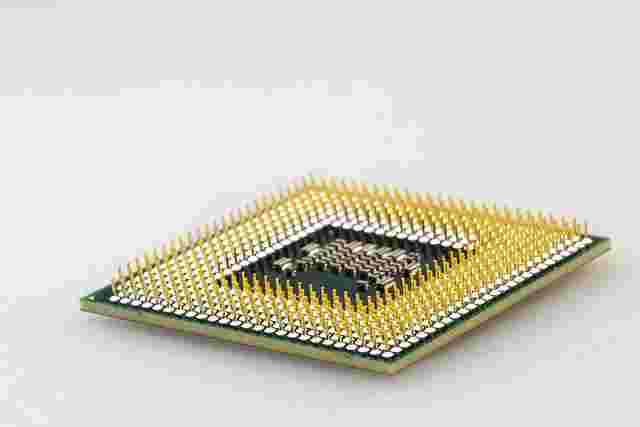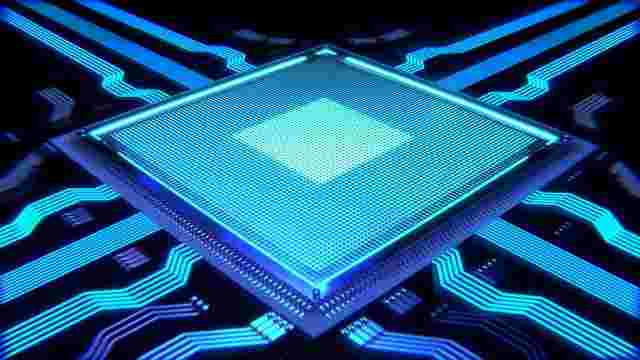Introduction:
The processor is the brain of your computer, responsible for carrying out all the computations necessary for your computer to function. Choosing the right processor can have a significant impact on the performance and capabilities of your computer. With so many different types of processors available, it can be overwhelming to know which one is right for you. In this post, we will break down the main types of computer processors and provide guidance on how to choose the right one for your needs.

Types of Computer Processors:
In this post, we will be covering the four main types of computer processors:
• Central Processing Unit (CPU)
• Graphics Processing Unit (GPU)
• Accelerated Processing Unit (APU)
• System on a Chip (SoC)
Each of these processors has unique strengths and applications, and understanding their differences is key to selecting the right one for your computer.
Factors to Consider:
When choosing a processor, there are several factors you should consider. These include:
• What you will be using your computer for
• Your budget
• The type of motherboard you have or will be buying
By understanding these factors and how they influence your decision, you can make an informed choice that meets your needs without overspending.
Conclusion:
By the end of this post, you will have a better understanding of the different types of computer processors and what to consider when choosing one. Armed with this knowledge, you can confidently make a decision that ensures your computer runs smoothly and meets your needs. So, let's dive into the world of computer processors and find the right one for you!
Types of Computer Processors:
There are four main types of computer processors, each with unique features and applications:
Central Processing Unit (CPU):
The CPU is the most common type of processor and serves as the brain of your computer. It is responsible for executing most of the instructions that your computer receives. CPUs come in different models and speeds, with Intel and AMD being the most popular manufacturers. The speed of a CPU is measured in gigahertz (GHz) and determines how quickly it can process data. CPUs are generally used for general computing tasks such as browsing the web, word processing, and running applications.
Graphics Processing Unit (GPU):
A GPU is a processor specifically designed for handling graphics-related tasks such as rendering and image processing. Unlike CPUs, which have a few powerful cores, GPUs have thousands of smaller, less powerful cores that work together to perform complex calculations. This makes them well-suited for tasks like gaming, video editing, and scientific simulations.
Accelerated Processing Unit (APU):
An APU is a type of processor that combines both CPU and GPU functionality in a single chip. This can lead to cost savings and increased efficiency, especially in devices with limited space, such as laptops and tablets. APUs are commonly used in multimedia and gaming systems that require both CPU and GPU performance.
System on a Chip (SoC):
An SoC is a complete computer system on a single chip. It contains not only the CPU and GPU but also other essential components like memory, storage, and networking. SoCs are commonly used in small devices like smartphones, tablets, and IoT devices, where space is at a premium. They are designed for power efficiency and are capable of running sophisticated applications while consuming minimal power.
Conclusion:
Each type of processor has its own strengths and weaknesses, and choosing the right one depends on your specific needs. By understanding the differences between these processors, you can make an informed decision and ensure that your computer is capable of handling the tasks you need it to perform. In the next section, we'll explore the different factors to consider when choosing a processor.
III. CPU Types Provide a more detailed overview of different types of CPUs, including: Intel Core series AMD Ryzen series ARM processors Explain the differences between them in terms of performance, power consumption, and price.
CPU Types:
When it comes to CPUs, the two most popular manufacturers are Intel and AMD. Both companies offer a range of CPUs with varying capabilities and price points. Additionally, there are ARM processors, which are commonly used in mobile devices.
Intel Core Series:
Intel's Core series of CPUs are designed for general computing tasks, ranging from basic office work to demanding applications like gaming and video editing. The most powerful CPUs in the Core series are the i9 models, which offer up to 16 cores and a maximum clock speed of 5.3 GHz. These CPUs are more expensive but offer exceptional performance for demanding tasks. The mid-range i5 models are a popular choice for everyday computing, while the budget i3 models are suitable for basic tasks like web browsing and word processing.
AMD Ryzen Series:
AMD's Ryzen series of CPUs are known for their exceptional performance and value. The most powerful CPUs in the Ryzen series are the Threadripper models, which offer up to 64 cores and a maximum clock speed of 4.5 GHz. These CPUs are ideal for professional-level tasks like 3D rendering and video editing. The mid-range Ryzen 5 and Ryzen 7 models offer a good balance between performance and price, while the budget Ryzen 3 models are suitable for basic tasks.
ARM Processors:
ARM processors are commonly used in mobile devices like smartphones and tablets. They are known for their low power consumption and are designed to maximize battery life. ARM processors come in a range of models, with the most powerful being the Cortex-A series. These CPUs offer good performance for mobile devices but are not as powerful as desktop CPUs like Intel Core or AMD Ryzen.
Performance, Power Consumption, and Price:
When it comes to performance, AMD Ryzen CPUs offer better value for money than Intel Core CPUs, with similar performance for a lower price. ARM processors have lower performance than desktop CPUs but are more power-efficient, making them ideal for mobile devices. In terms of power consumption, ARM processors are the most efficient, followed by AMD Ryzen and Intel Core CPUs. In terms of price, Intel Core CPUs are generally more expensive than AMD Ryzen CPUs, with ARM processors being the cheapest option.
Conclusion:
There are several different types of CPUs available, each with its own strengths and weaknesses. Understanding the differences between them in terms of performance, power consumption, and price can help you choose the right CPU for your needs. Whether you're building a gaming PC or looking for a budget laptop, there is a CPU out there that can meet your needs.
Factors to Consider When Choosing a Processor:
When choosing a processor, there are several factors to consider that can influence your decision. These factors include:
1. What You Will Be Using Your Computer For:
The tasks you will be performing on your computer can have a significant impact on the type of processor you should choose. For example, if you're a gamer, you'll want a processor with high clock speeds and multiple cores to handle the demands of modern games. On the other hand, if you're a video editor, you'll want a processor with a high number of cores and threads to handle the demanding video editing software.
2. Your Budget:
Your budget will also play a significant role in the processor you choose. High-end processors with more cores and higher clock speeds can be expensive, so you'll need to determine how much you're willing to spend on a processor. However, keep in mind that a higher price does not always guarantee better performance, so it's important to find the right balance between performance and price.
3. The Type of Motherboard You Have or Will Be Buying:
The type of motherboard you have or plan to buy can also influence your processor choice. Not all motherboards support every processor, so it's important to make sure the processor you choose is compatible with your motherboard. Additionally, different motherboards have different socket types, so you'll need to make sure the socket type matches the processor you choose.
Conclusion:
Choosing the right processor is important for ensuring that your computer can handle the tasks you need it to perform. By considering factors like what you will be using your computer for, your budget, and the type of motherboard you have or plan to buy, you can find a processor that meets your needs and fits within your budget. With the right processor, you can enjoy a fast and responsive computer that can handle even the most demanding tasks.
Which Processor is Right for You?
After considering the different types of computer processors and the factors to consider when choosing a processor, it's important to determine which processor is the best fit for your needs and budget.
For gamers or content creators who need high processing power, a CPU with a high number of cores and threads, such as an AMD Ryzen or Intel Core i9, would be a good choice. For users on a budget who need a processor for basic tasks like browsing the web or using office applications, an Intel Core i3 or AMD Ryzen 3 would be a good fit.
For users who need a processor with a built-in graphics card, an AMD APU or Intel Core i5 with integrated graphics would be a good choice. For users who need a low-power processor for mobile devices, an ARM processor or an Intel Atom processor would be a good fit.
Ultimately, the right processor for you will depend on your specific needs and budget. By considering the different types of processors and the factors to consider when choosing a processor, you can find a processor that meets your needs and fits within your budget.
Conclusion:
In this post, we've covered the different types of computer processors, including CPUs, GPUs, APUs, and SoCs, as well as the different factors to consider when choosing a processor. We also provided guidance on which processor might be the best fit for different types of users, based on their needs and budget.
The key takeaway is that choosing the right processor is important for ensuring that your computer can handle the tasks you need it to perform. By carefully considering what you will be using your computer for, your budget, and the type of motherboard you have or plan to buy, you can find a processor that meets your needs and fits within your budget.
We encourage readers to take the time to research and compare different processors before making a decision. By doing so, you can ensure that you're getting the best value for your money and that your computer will be able to handle your needs for years to come.



